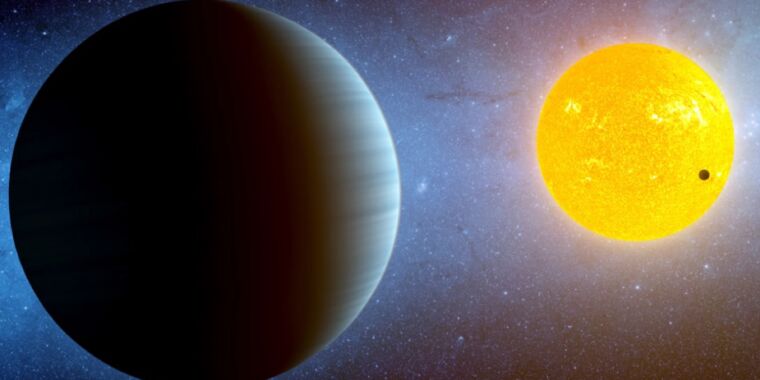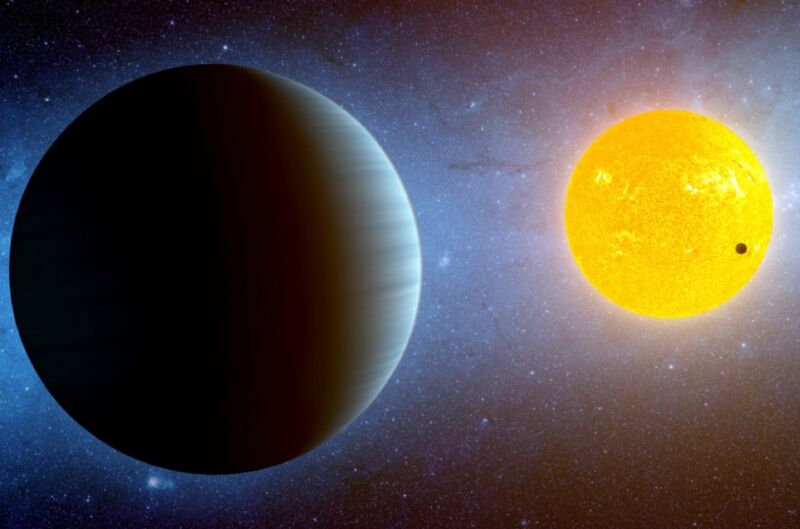Astronomers found ultra-hot, Earth-sized exoplanet with a lava hemisphere
Also: A separate team found a small, cold exoplanet with a massive outer companion.


Enlarge / Like Kepler-10 b, illustrated above, newly discovered exoplanet HD 63433 d is a small, rocky planet in a tight orbit of its star. (credit: NASA/Ames/JPL-Caltech/T. Pyle)
Astronomers have discovered an unusual Earth-sized exoplanet they believe has a hemisphere of molten lava, with its other hemisphere tidally locked in perpetual darkness. Co-authors and study leaders Benjamin Capistrant (University of Florida) and Melinda Soares-Furtado (University of Wisconsin-Madison) presented the details yesterday at a meeting of the American Astronomical Society in New Orleans. An associated paper has just been published in The Astronomical Journal. Another paper published today in the journal Astronomy and Astrophysics by a different group described the discovery of a rare small, cold exoplanet with a massive outer companion 100 times the mass of Jupiter.
As previously reported, thanks to the massive trove of exoplanets discovered by the Kepler mission, we now have a good idea of what kinds of planets are out there, where they orbit, and how common the different types are. What we lack is a good sense of what that implies in terms of the conditions on the planets themselves. Kepler can tell us how big a planet is, but it doesn't know what the planet is made of. And planets in the "habitable zone" around stars could be consistent with anything from a blazing hell to a frozen rock.
The Transiting Exoplanet Survey Satellite (TESS) was launched with the intention of helping us figure out what exoplanets are actually like. TESS is designed to identify planets orbiting bright stars relatively close to Earth, conditions that should allow follow-up observations to figure out their compositions and potentially those of their atmospheres.
What's Your Reaction?




























:quality(85):upscale()/2024/01/25/878/n/1922153/f94f61ec65b2bf18018990.47538761_.jpg)

:quality(85):upscale()/2024/01/26/751/n/1922153/6bd241b765b3e57a0c5559.91495665_.png)
:quality(85):upscale()/2024/01/26/759/n/29590734/b7f6660b65b3e8460d7196.77057039_.jpg)













